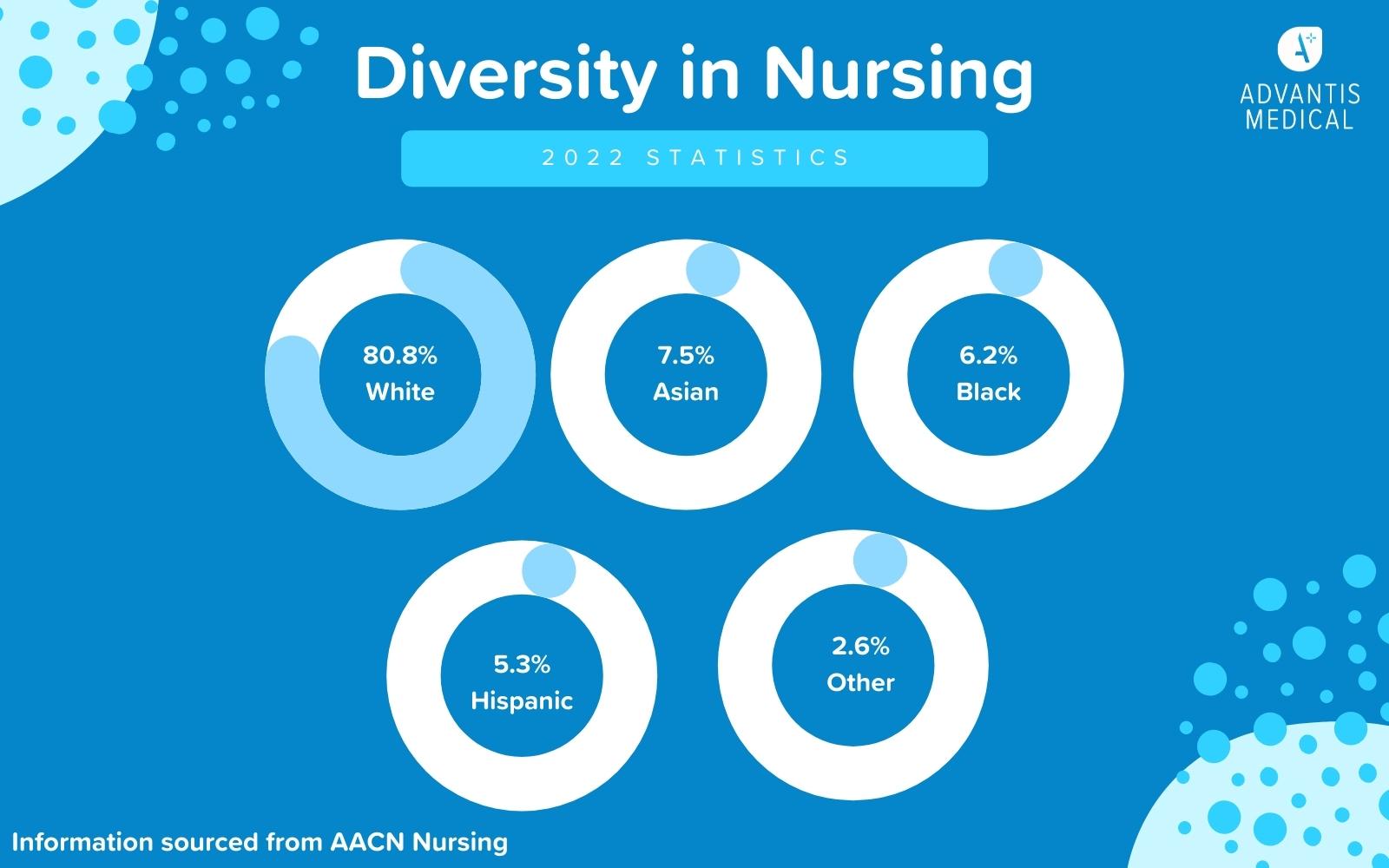As healthcare workers, we see patients of all walks of life daily. It is our responsibility to provide everyone the best healthcare we possibly can regardless of socioeconomic background, religion, culture, race, ethnicity, gender, and sexual orientation. This may be misconstrued as providing the exact same healthcare to everyone, which is not always the case. We have to consider their practices and beliefs to provide culturally competent care. Embracing diversity in healthcare can provide a non-biased and well-rounded approach to healthcare for everyone.
Why is diversity important in healthcare? If the entire healthcare system were composed of people who look the same and believe the same things, then new ideas, inventions, and progress would never be made. Additionally, it could prevent those who don’t look the same or believe the same things from seeking healthcare for fear of being misunderstood or mistreated.

Negative Impact of Lack of Diversity in Healthcare
- Communication breakdown: The communication styles and values vary from patient to patient, and without a diverse workforce, concerns, symptoms, and feelings can get lost in translation. Additionally, a patient may withhold pertinent information when they feel misunderstood. This can truly create life-threatening situations.
- Limited perspectives: Being familiar with only one school of thought creates a limited perspective for problem-solving and providing well-rounded care. It is imperative to become familiar with various schools of thought and belief systems. This doesn’t mean you have to change your belief system, but you need to recognize other beliefs and respect them.
- Bias: Bias behaviors come in all shapes and sizes. They can be intentional or unintentional. Regardless of which, it is vital to recognize your biases and adjust your approach to those patients affected by learning about their beliefs and values and avoid stereotyping them.
- Increased Health Disparities: Lacking diversity can lead to increased health disparities for many reasons, but one of the factors is the avoidance of seeking medical care due to the lack of culturally competent healthcare.
Positive Impact of Diversity in Healthcare
- Increased morale and inclusion: Employees often enjoy knowing they work for a company that wants to improve societal norms. Not only does it increase inclusion for the patients but also for healthcare workers. This can, in turn, promote further diversity of the healthcare workforce!
- Increased trust and comfort levels: A diverse healthcare system also improves patient trust and comfort levels. They can feel assured that their values and beliefs are respected and those caring for them understand them.
- Increased innovation: Healthcare systems with diverse workforces tend to have more creative and innovative ideas due to their employees’ various viewpoints and experiences.
- Decreased health disparities: Healthcare diversity can also increase access to patients in underserved communities. With increased access and trust in their healthcare providers, patients are more likely to follow their providers’ recommendations.
Our Role in Promoting Diversity in Healthcare
- Have an open dialogue about other beliefs and values: Participating in open communication with those who think differently than you can help you understand their viewpoints and also help them understand yours. Again, this doesn’t mean you need to change how you think or feel, but this encourages mutual respect.
- Encourage more diverse applicants in your healthcare system: Encouraging others to apply to your system can help promote inclusion for your patients and other staff members.
- Be open to learning about others’ beliefs: Go into conversations willing to learn without bias. Avoid stereotyping and respectfully ask questions if you don’t understand.
- Face biases head-on: As previously mentioned, we all have biases, whether we want to believe we do or not. Often they are unconscious biases, but we need to be honest with ourselves and continue to learn how to provide culturally competent care.
Diversity in healthcare is imperative for both healthcare providers and patients alike. Not only does it create inclusion for all, but it can also reduce the incidence of health disparities. As healthcare workers, it is our responsibility to recognize the dangers of limited healthcare diversity and help promote a more diverse healthcare environment.
Advantis Medical values inclusion for all and a culture of diversity. We are your source to attain your professional goals.









